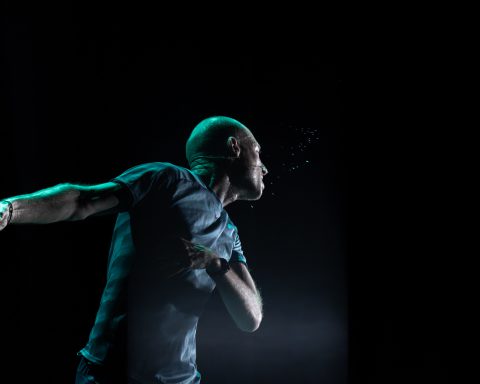On 12 November 2022, MdbK Leipzig hosted its first Gender Day. The day dealt with questions about the representation of gender in art and was a continuation of the first episode of MdbK‘s project group, [next;raum]. Various interested parties from city society dealt with different aspects of the topic, such as gender justice, queerness, and role concepts in the [next;raum] part of the museum collection. The process and the results of the project group, which met between January and June 2022, resulted in a presentation called Unterm Rock (Under the Skirt). Reflections on gender issues at MdbK, [next;raum] Episode #01, can be seen at MdbK Leipzig until 8 January 2023.
The project discussed various questions of which I will name just a few. “Where are perspectives beyond bisexuality?“, “How can we avoid becoming accomplices of a patriarchal, hegemonic exhibition practice?”, “Who and what shapes our gaze?”, “How could we prevent old images and thought patterns from being constantly reproduced”, “Where does the male/female binary thinking of our society manifest itself in our social structures”, “How can more visibility be created for non-binary perspectives?”, and “How does the museum use its potential to stimulate and strengthen processes of change?“ These questions were explored together with visitors to the museum. This included a performance, talks and guided tours in the [next;raum] space, a discussion with guests, and a collaborative meal at Café Treff.
I attended with a group of friends who normally feel othered by our society.
One of the overwhelming opinions that were discussed afterward was the fact that in this public space, on this day, none of them felt uncomfortable. Gender Day was very well attended and the spaces were contentedly full and yet, nobody felt awkward or crowded. The crowds were respectful but friendly and there was a feeling of camaraderie that permeated the entire building. MdbK’s [next;raum] is a small space filled with interpretive texts and artworks, re-imagined works with modern commentary, and space to sit and talk. The purpose of the room is clearly to allow visitors to reflect on the commentary being made regarding gender, and the assumptions our society makes about gender.
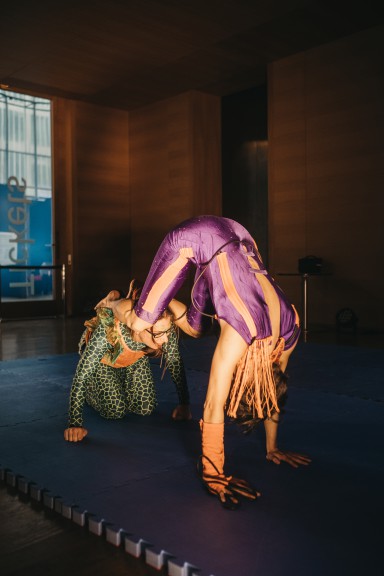
The entire day was very interactive. The artists themselves were present and available to intermingle and comment on their work. It presented the visitors with a unique opportunity to speak to the creators of the artworks on a 1-on-1 basis. Although we saw some people who actively avoided being drawn into discussion. Perhaps it felt too personal, too immediate but there was also the language barrier to take into account. Being a German exhibition in a German museum, one would expect the main language to be German. However, we all felt there to be a paucity of opportunities for speakers of other languages to interact and take part. The crowd was generally quite young. Therefore a good knowledge of English as an international language could have been expected.
The opening act was excellent. The performance artists created a mood and atmosphere that was electric and yet not uncomfortable.
I found myself asking: Where does feminism lie in this project? Is feminism a core concern of the project, or is it subject matter – a vehicle by which to discuss something else? You’re preoccupied with a need to be certain, I told myself.
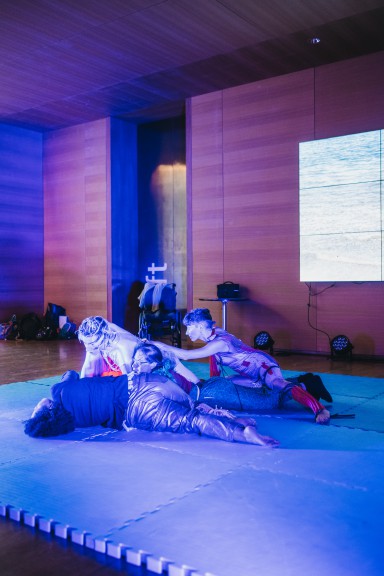
None of us have a frame of reference outside our own immediate experience. Nonetheless, the performance art presented to us in the opening act allowed a glimpse into the experiences of others. The performance collective is called POLYMORA inc., with Giovanna di Filippo Vargas, Sophie Stephan, and ART3MIS. They managed to bring about this peek into another’s reality without bashing us over the head with heavy symbolism and in-your-face allegory.
The discussion with the queer sex shop, Juicy, team was lively and relaxed, allowing visitors to participate or simply observe.
Humour abounded. Their open acceptance and casual treatment of the subject matter brought about an attitude of almost pedestrian interest in objects usually considered to be shocking or taboo.
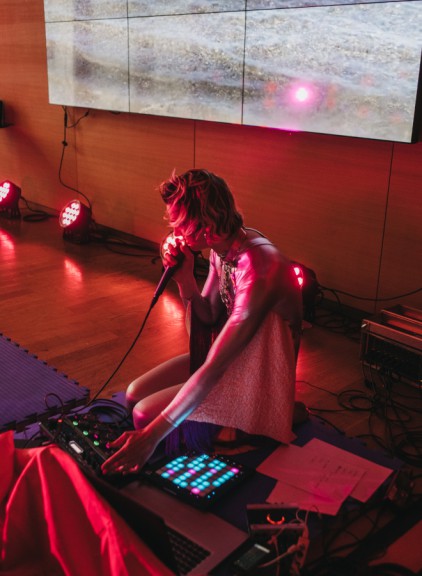
The number of books about feminism and gender identity available from MONAliesA was impressive. Again, mostly in German, but the range was remarkable. There was a table outside where visitors were invited to sit and browse the selection. This again contributed to things feeling relaxed and homey.
The fact that entrance was free encouraged a lot of people to go to the museum. Many of us also wandered through the other permanent exhibitions just for fun. Part of the project consisted of answers to some of the above-mentioned questions. These were written by visitors to the museum over the six months of the project. They were displayed all over the walls to encourage visitors to reflect and discuss. Here we saw much more use of English as an international language. Many of the answers mentioned wealth and its effect on gender assumptions.
It was heartening to see that the curators/creators of the exhibition showed many different opinions. Even those critical of the museum and its processes.
We weren’t able to attend the evening meal with its many planned table discussions. However, an acquaintance of mine was there and reported that it was lively but friendly. Without judgement or aggression, as one would hope such discussions would be, simply by virtue of their subject matter.
All in all, I would consider Gender Day to have been a remarkable success. For example, it addressed many of the issues being faced by gender non-binary citizens. It opened up discussions, and not only amongst the queer community. Members of mainstream society who were at the museum today had tangential contact with the topic and thus joined in. Well done, MdbK!

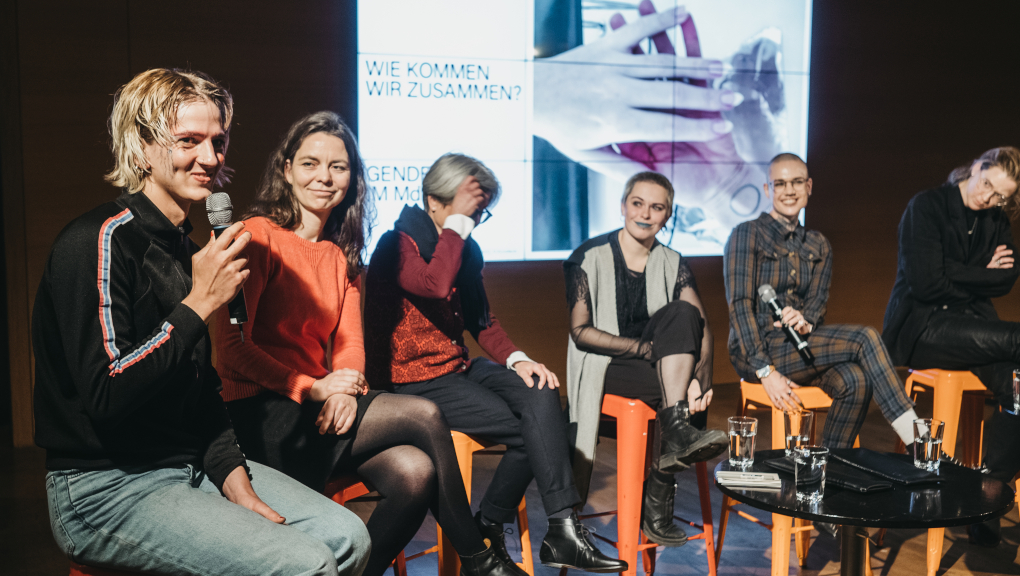
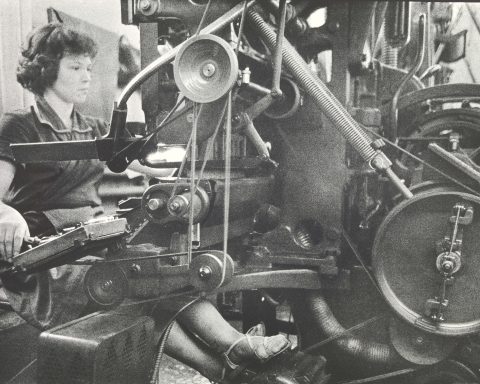


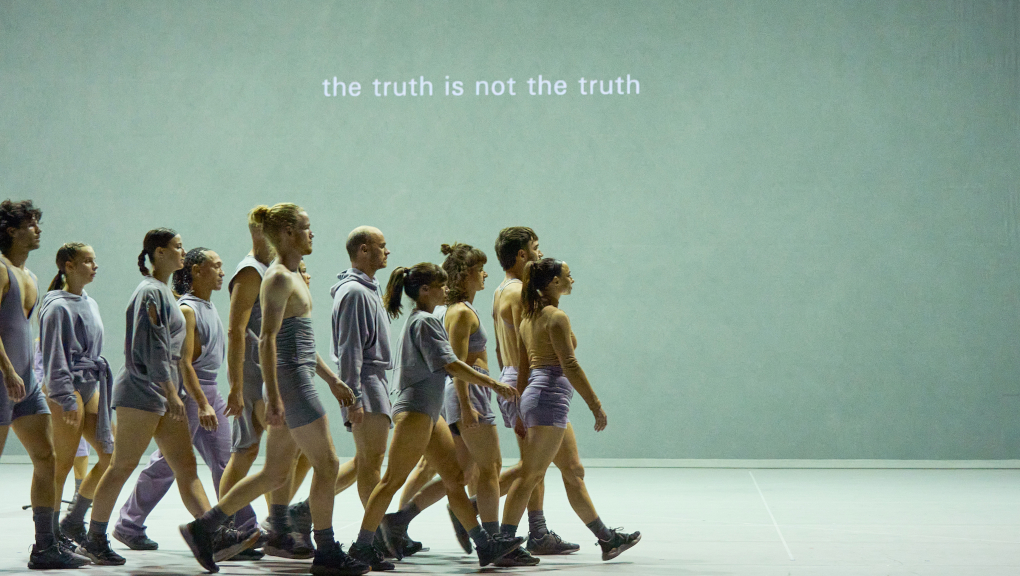


![Wine & Paint event on 9 Nov. 2024 at Felix Restaurant, Leipzig. Photo: Florian Reime (@reime.visuals] / Wine & Paint Leipzig](https://leipglo.com/wp-content/uploads/2024/12/pixelcut-export-e1733056018933-480x384.jpeg)
